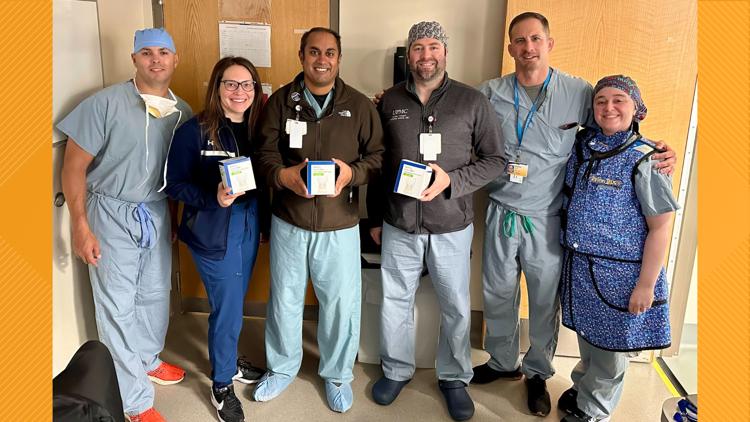HARRISBURG, Pa. — An 82-year-old woman from Perry County with aortic valve stenosis was the first person in the world to undergo a new type of transcatheter aortic valve replacement (TAVR) at UPMC Harrisburg.
The patient has been discharged and is recovering well, according to UPMC staff members.
Hemal Gada, M.D. and the president of the UPMC Heart and Vascular Institute in Central Pa. performed the procedure using the newest-generation FDA approved Evolut TAVR system for the treatment of symptomatic severe aortic stenosis.
Dr. Gada is the first interventional cardiologist in the world to use this latest Evolut FX+ TAVR system.
"This is a significant achievement for patient care in our region," said Gada. "The primary distinguishing feature of the Evolut FX+ and the previous Evolut system is the ease of accessing the coronary arteries, facilitated by the large openings in the valve frame. This system's improved lifetime management is highly beneficial to patients undergoing the TAVR procedure, especially younger patients who may require additional procedures in the future.”
“UPMC Heart and Vascular Institute in Central Pa. continues to be a leader in clinical research and patient care by transforming the delivery of the Evolut platform and improving clinical outcomes such as the reduction in pacemaker rates,” added Gada. “This has impacted the care of aortic stenosis and facilitated patients leaving the hospital in better health.”
Severe aortic stenosis occurs when the aortic valve leaflets become stiff and thickened and have difficulty opening and closing, making the heart work harder to pump blood to the rest of the body. Severe aortic stenosis often reduces a patient's quality of life and limits their daily activities.
If left untreated, 50% of patients with symptomatic severe aortic stenosis can die from heart failure in as little as two years.
Doctors at the UPMC Heart and Vascular Institute in central Pennsylvania were also the first in the region to perform open heart surgery and the first to perform coronary artery balloon angioplasty. Other firsts include the implantation of a drug-eluting coronary stent, percutaneous (minimally invasive) aortic valve procedures (TAVR), and the implantation of an FDA-approved percutaneous mitral valve repair device.
Among other recognitions, UPMC Heart and Vascular Institute in Central Pa. recently achieved the distinguished three-star rating, the highest rating possible, from The Society of Thoracic Surgeons (STS) in four out of five total categories for patient care and outcomes. This three-star rating places UPMC Heart and Vascular Institute in Central Pa. among the most elite cardiac surgery programs — the top 1% — in the United States and Canada.



